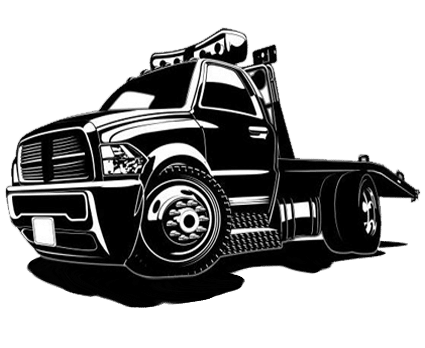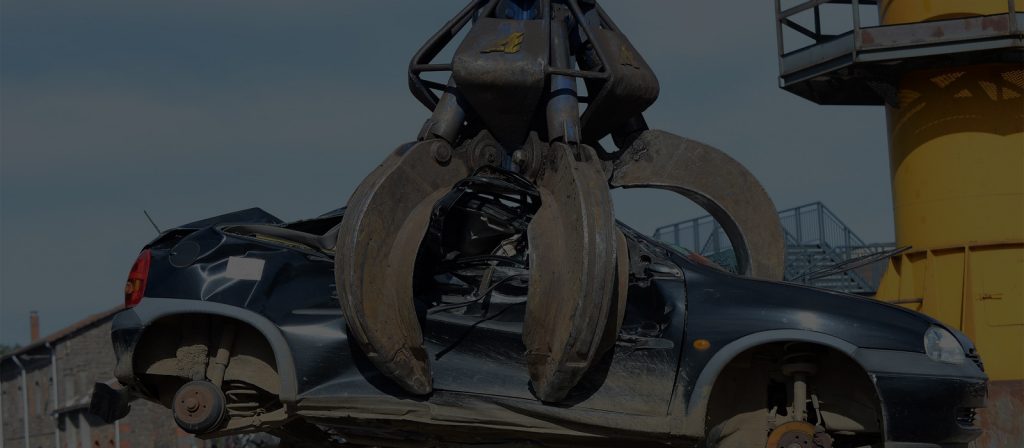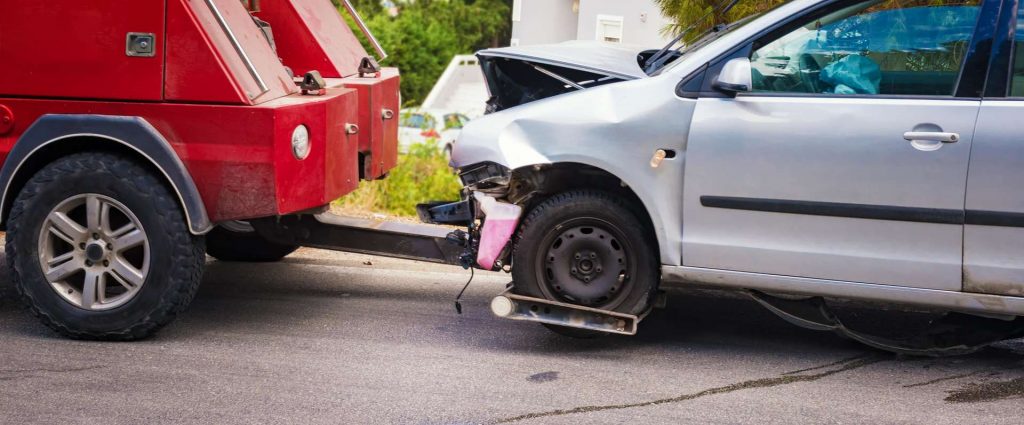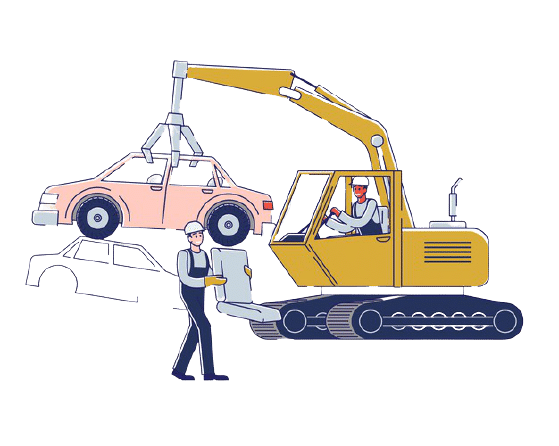Sell or Donate Your Vehicles In Terrebonne Quebec
GET CASH FOR CARS INSTANTLY
- Get $300 to $2000 in cash for scrap vehicle & our junk car removal service.
- Free same-day pickup in all of Montreal and Surrounding Cities.
- We buy all type of vehicles in any condition, work 7 days a week.
- Sell your vehicle without leaving your house
ANY MAKE AND MODEL • ANY CAR CONDITION • FREE SAME-DAY TOWING • INSTANT CASH FOR CARS
Are you considering parting ways with an old vehicle? Whether it’s due to wear and tear or simply a change in lifestyle, the decision can often feel overwhelming. Fortunately, there are various avenues available, making the process of selling or donating your car more straightforward than you might think.
Understanding the options you have at your disposal is essential, as each path offers unique advantages and potential drawbacks. From local scrap yards to specialized car buying services, and even charitable organizations, knowing where to look can lead to a beneficial outcome. By examining these choices, you can make an informed decision based on your vehicle’s condition and your personal needs.
In this article, we will outline everything you need to know about selling or donating your vehicle, including how to maximize its value, the necessary paperwork, and tips for a seamless transaction. Get ready to dive into the world of cash for cars, your ultimate guide to making the most of your automotive asset.
Identify the condition of your vehicle
When deciding the fate of your vehicle, it’s crucial to conduct a thorough assessment to determine its condition and whether it’s more beneficial to repair or sell. If you find that the cost to fix your vehicle surpasses its overall value, it could be a clear sign to consider selling or junking it. For cars with severe chassis or body damage, it’s common for them to be labeled beyond repair, suggesting that scrapping may be the most viable option.
Conversely, vehicles with partial damage might not be lost causes, as there could be a chance for restoration, provided there are no critical underlying problems. However, the majority of cars that end up in junkyards are usually in a state too poor for repair, which is an indicator of what is generally expected of vehicles ready for scrapping.
Before finalizing your decision to sell or recycle your vehicle, it’s essential to disconnect the legal ties to the car. This can be done by properly transferring the title and confirming with state records that you are no longer associated with the vehicle. Careful consideration of these factors will guide you in determining the next steps for your car—whether to renovate, sell as-is, or process for scrap.
Explore options for selling your vehicle
When you’re ready to part with your old or damaged vehicle, it’s essential to explore the different avenues available to you. Cash for cars services are a popular choice for those looking to offload their unwanted vehicles swiftly, with immediate compensation often available at the moment of pickup. These services prioritize convenience, but it’s important to note that they may not offer the highest returns compared to parting out the car or selling it to a private buyer.
The selling method chosen will largely depend on the vehicle’s condition and the seller’s personal preferences. Options range from online junk car buyers, which often come with the perks of free towing and streamlined service, to local scrap yards where cars can be properly recycled in line with environmental standards. For those not concerned with profiting but more interested in philanthropy, donating the vehicle to a charitable organization can also be rewarding, sometimes yielding a tax benefit.
Regardless of your car’s state—whether it’s a high-mileage Kia Soul or a damaged Toyota Camry—there is a selling avenue that fits your needs. Here are some of the top considerations.
Local scrap yards
Local scrap yards play an essential role in the eco-friendly disposal of vehicles that are past their prime. If you’re leaning towards environmentally responsible scrapping, locating a licensed ATF is critical. These facilities manage the breakdown and recycling of your car’s components, ensuring that environmental standards are maintained.
When you sell your vehicle to a scrap yard, they often remunerate you based on the scrap metal value. However, the payout may not seem as lucrative once you factor in towing fees if they’re not covered. Therefore, it’s wise to scout for scrap yards that offer free towing or to solicit multiple quotes to make sure you’re getting the best deal for your junk car.
Online buyers
The era of online retail has expanded to include the sale of junk or salvage cars, simplifying what was once a cumbersome process. Online junk buyers provide quick, no-hassle services including easy quotation processes, handling paperwork, and arranging pickups directly from your home. This option eliminates the need to personally transport non-operable or wrecked vehicles.
Before taking the plunge, ensure you research to find a reputable buyer. Checking reviews and comparing quotes can help you gauge if you’re getting a fair offer for your car. The convenience and speed of online buyers are unmatched, making it a preferred choice for those looking to quickly move on from their old cars.
Specialized car buying services
Specialized car buying services have carved out their niche in the automotive sales industry by targeting older and junk vehicles. Companies like ScraptonAuto have earned a solid reputation for their user-friendly experience and customer satisfaction. Although the payouts from these services may vary and might not be as high as private sales, the benefits of convenience and immediate payment can outweigh these factors.
These buying services often include complimentary towing, speeding up the sales process, and adding a layer of convenience for you. If you’re in a hurry to sell and happy to exchange some value for the ease of transaction, reaching out to respected brands like Carvana or Copart may be the right move. They’ve been recognized for their fairness, efficiency, and ease of transaction in the scrap vehicle market.
When considering what to do with an unwanted vehicle, it is crucial to understand your priorities and the different options available. Whether maximizing financial return or seeking the simplest disposal method, there’s a service out there that will meet your needs.
Discover donatable vehicle programs
When you’re contemplating what to do with a vehicle past its prime, you might not immediately think of donating it. Yet, there’s a wealth of charitable programs that can turn your unwanted vehicle into valuable resources for communities in need. Exploring the world of charitable vehicle donations reveals a simple and impactful way to support essential services without a direct financial contribution.
Many renowned charities, including Ronald McDonald House Charities (RMHC) and The Salvation Army, have embraced vehicle donations as a vital funding mechanism. These cars, trucks, and even boats, no matter their condition, enable them to deliver crucial programs like disaster relief, and services for the homeless and the disadvantaged.
Partnering with Charitable Adult Rides & Services (CARS) and similar services, these organizations facilitate the donation process by offering free vehicle pickup and the proper documentation necessary for tax deductions. Such partnerships allow charities to remain focused on their missions while outsourcing the management of vehicle donations to specialized third parties.
The process to donate is straightforward and altruistic—not to mention eco-conscious. To begin, verify if the charity you’re interested in accepts vehicle donations through their website or by contacting them directly. After this, the rest of the process is typically managed for you, including the towing of non-functioning vehicles, making it a hassle-free way to contribute to a good cause.
Charities accepting vehicle donations
There is no shortage of reputable charities that gratefully accept vehicle donations. Among them, you’ll find Disabled American Veterans, Goodwill, and Habitat for Humanity, each supporting a variety of noble initiatives with the help of your donated vehicle. Whether fostering community development, aiding veterans, or empowering individuals through job training, these contributions play an instrumental role.
Due to limited capacity and resources, many charities choose to work with third-party vendors that specialize in handling the intricacies of car donations. This enables them to allocate their human and financial resources to their core programs. Conveniently, donors of non-functional vehicles can still participate, as these charities accept cars in any condition.
When you donate your vehicle, organizations like The Salvation Army channel it into a broad spectrum of services, from providing disaster relief to funding rehabilitation programs. Donors not only support these causes but typically receive a tax-deductible receipt, often within a week, providing a financial benefit for their generosity.
Benefits of donating your car
The benefits of donating your car stretch far beyond just getting rid of an unwanted vehicle. Firstly, your donation supports the causes you’re passionate about, helping extend their reach and impact on the community. Furthermore, there are potential tax advantages, as your contribution may qualify you for a deduction under IRS regulations, provided the charity verifies their tax-exempt status.
From an environmental perspective, donating your car helps reduce waste and promotes sustainability. Instead of old cars piling up in landfills, they are recycled and put to good use, minimizing the ecological footprint. Notably for donors, charities streamline the process by offering complimentary towing services, making it convenient to support their work.
In summary, donating your car is a noble endeavor that can yield both societal and personal rewards. It’s a chance to contribute to a charitable cause, receive a tax benefit, and dispose of your vehicle responsibly, all at once—all with minimal effort on your part. It’s a win-win scenario that begins with just one straightforward step: choosing to donate.
Compare national platforms for car sales
When looking for the best way to get rid of a junk car, owners must navigate a variety of national platforms and local options. Each choice presents its own benefits and challenges. Here are some primary avenues to consider:
overview and process
When considering what to do with an old or unwanted vehicle, you have two primary options: donate your car to a charitable organization or get paid top cash for it from junk car buyers. Both processes begin with providing accurate information about the vehicle, including make, model, and condition.
Donating Your Car: Charitable organizations offer an easy donation process; you typically submit your car’s details and properly transfer the title. In turn, charities may refurbish the car for resale or salvage parts. A significant benefit of car donations is the potential to receive a tax deduction. You might claim the vehicle’s sale price or its fair market value up to $500 based on the sale outcome.
Selling Your Car for Cash: On the other hand, junk car buyers provide a convenient way to turn your car into cash. Top cash offers, especially attractive during seasons for vehicles like a Toyota Corolla in spring or a Honda Civic at year’s end, can be obtained quickly through online forms. Top junk car buyers typically include towing, adding to the convenience of the service and eliminating the need to drive the vehicle to a scrap yard.
Service | Benefit |
|---|---|
Vehicle Donation | May be tax-deductible |
Cash for Junk Cars | Immediate payment & free towing |
Remember, if you’re choosing to sell, you may encounter various buyers, such as some who specialize in models like the Toyota Prius for recycling or offer top dollar for high-mileage cars like a Kia Soul. Ensure you secure a fair price and a process that adheres to legal requirements, such as proper title transfer.
Copart overview and process
Copart, with over four decades of expertise, stands as a dependable choice for those looking to sell junk cars. They offer an effortless online auction platform that serves a wide array of buyers including parts services, salvage collectors, body shops, and dealerships across the country.
Sellers can effortlessly obtain an instant offer by providing their vehicle’s VIN or basic details such as make, model, and year. Accepting an offer is streamlined, and the seller can then arrange a pickup time that suits their schedule best.
The transaction is both swift and transparent; payment is provided immediately following a brief inspection of the car. Copart’s efficient process ensures sellers experience a hassle-free transaction.
Quick Overview of Copart’s Selling Process:
- Request an Offer – Use the car’s VIN or enter make, model, and year.
- Accept the Offer – Review and accept the fair price given for your car.
- Schedule a Pickup – Choose a convenient time for vehicle collection.
- Get Paid – Receive immediate payment post-vehicle inspection.
By choosing Copart, sellers can rest assured they are engaging with an experienced industry leader dedicated to a straightforward and fast selling experience.
Maximizing your vehicle’s sale value
Maximizing the resale value of your junk car involves a strategic approach that can significantly boost your overall earnings. To begin with, if you possess a vehicle with rare engine parts or a high-end audio system, selling these components separately can lead to a lucrative outcome. Specialist collectors and enthusiasts are often on the lookout for such items and are willing to pay a premium. Furthermore, a precise and comprehensive disclosure of your vehicle’s condition can aid cash buyers in making a more exact appraisal, resulting in a fairer offer for your car.
It’s also valuable to recognize when a car has reached the end of its practical life. If maintenance and repair costs are persistently overshadowing the vehicle’s value, it might be time to scrapping it; an added benefit here comes in potentially avoiding future expenses. While quick cash for car services offers convenience and swift transactions, selling your vehicle privately could command a higher price, despite the extended effort and time required. It’s a balance between immediate convenience and potential monetary gain.
Cleaning and preparing your vehicle
Enhancing the appeal of your junk car could lead to more competitive offers. Start with the basics: remove all personal belongings from the interior, especially sensitive documents that may contain personal information. Thoroughly inspect your vehicle for any damage or wear, as this information is critical during the sale process. Next, compile all necessary vehicle documentation, such as title, registration, and insurance papers, which are vital for completing a sale.
Your car’s presentation can be a dealmaker or breaker; a clean, well-maintained vehicle is far more likely to attract serious offers. Though you’re selling a junk car, the effort put into its appearance can reflect a well-cared-for vehicle, potentially enticing buyers and ensuring you get a better offer.
Gathering necessary documentation
If you decide to donate your vehicle to a charitable organization, documentation is essential. You must receive written acknowledgment from the charity with your name, the vehicle’s VIN, donation date, and a note of any goods or services received in exchange. For cars valued over $500, is required along with your tax return. Vehicles valued at $5,000 or above necessitate an independent appraisal and the completion of Section B of SAAQ Form 8283.
After donating, if the charity sells the vehicle, they must send you documentation of the sale price within 30 days, a key part of complying with IRS regulations. Also keep any receipts for repairs or improvements — these can be substantial in asserting your tax deduction claims. Keeping a detailed record of all these documents is necessary to accurately report and benefit from your vehicle contribution during the tax season.
When it comes to converting your old car into cash or making a charitable donation, clarity, and thoroughness in preparation pay off, ensuring peace of mind and possible financial gain.
Cleaning and preparing your vehicle
Cleaning and preparing your vehicle before selling it or considering it for donation can significantly influence the offers you receive. Here’s a quick guide to ensure your vehicle makes the best impression:
- Personal Belongings: Begin by removing all personal items, especially documents with personal information.
- Inspection: Conduct a thorough inspection of your vehicle for any damage or issues that need reporting to potential buyers.
- Important Documents: Gather the vehicle’s title, registration, and insurance papers, as these are essential for the sale process.
- Vehicle Appearance: Clean the vehicle inside and out. A well-maintained appearance can increase your car’s appeal.
- Vehicle’s Condition: Provide a detailed and honest account of your vehicle’s condition, including mechanical issues and body damage, to allow buyers to make an accurate assessment.
Remember, a little effort in preparation can lead to a better purchase price, whether it’s for making a charitable donation or for obtaining that much-desired cash for your junk car.
Gathering necessary documentation
Gathering Necessary Documentation for Vehicle Donation
When donating your car to charity, proper documentation is vital for a smooth process and to ensure you can claim a tax deduction. Start with obtaining a written acknowledgment from the charity. This must include your name, the vehicle’s VIN, the donation date, and details of any goods or services received in exchange.
For vehicles valued over $500, SAAQ Form 8283, Section A must be completed. If your car is worth $5,000 or more, an independent appraisal is compulsory, and you’ll need to fill out Section B of the same SAQQ form. Remember to attach this to your tax return.
Post-donation, the charity is obliged to send you documentation detailing the vehicle’s sold price within 30 days. This is a crucial step for meeting IRS regulations.
Keep receipts of repairs or improvements made to the car, as they may increase your tax deduction. Failure to meticulously document these transactions can complicate your tax situation.
Here is a quick checklist for your reference:
- Written acknowledgment from the charity
- Sale documentation from the charity
- Receipts for any repairs or improvements
Staying organized and thorough with these documents will pave the way for claiming your financial benefit come tax season.
Understand the paperwork involved
Navigating the paperwork aspect of selling or donating your junk car is a crucial step to ensure that everything proceeds legally and smoothly. Whether the car is worth heaps of cash as a functioning high-mileage junk Kia Soul or is simply taking up space as a non-running Hyundai Sonata, the proper documentation is key.
Ideally, having the title of the car simplifies the transaction, as it’s the most straightforward proof of ownership. However, if the title isn’t available, other documents such as the vehicle’s registration or bill of sale can sometimes be used as an alternative proof of ownership. When the time comes to finalize the sale of the vehicle, paperwork you’ll likely contend with includes the title transfer, updated registration, and possibly more.
Online junk car buyers provide a convenient service, as many handle the necessary paperwork for the transaction. This service can alleviate much of the strain typically associated with paperwork. Charities like Goodwill also have streamlined processes for vehicle donations, requiring donors to complete a donation form and providing a receipt when they pick up the vehicle.
It is crucial to keep a detailed record of all documentation, including sales receipts or donation service receipts. These records serve to document the change in ownership and will be paramount when claiming tax deductions for donations.
Title transfer registration
Title transfer is a non-negotiable part of vehicle donation or sale; it is the critical action that legally transfers ownership of the vehicle from you to the buyer or nonprofit organization. Completing the title exchange correctly ensures that you release any future liabilities associated with the vehicle after the fact.
Since most legitimate buyers and donation services won’t accept a car without a valid title, it’s imperative to secure it before soliciting offers. After transferring the title, it is wise to verify with your state’s records to confirm that you’re no longer recorded as the vehicle’s legal owner.
Each state has its own specific requirements and time frames for title transfer, so it’s essential to consult with your local SAAQ or licensing agency to comply with all local guidelines.
Bill of sale and other requirements
Prior to selling your vehicle, make sure all the necessary documents are in order. Besides the title or a substitute proof of ownership, prepare to thoroughly inspect your vehicle for damages and any relevant information that may be required to be disclosed during the selling process.
Consulting with your local SAAQ or licensing agency can illuminate any local and state-specific requirements you might not be aware of if you’ve never sold a vehicle before. This inspection will help you in providing accurate details to potential buyers, be they private purchasers or scrap car removal services.
When considering the option of donating your vehicle, be cognizant of the associated restrictions and paperwork. Obtaining a charitable donation receipt that accurately reflects the vehicle’s market value is mandatory for your tax records.
Importantly, donating a vehicle might qualify you for tax deductions. The charitable donation receipt is an essential document that could aid in reducing your taxable income based on the car’s assessed value. Ensure that all documentation reflects the true condition and value of your vehicle whether for sale or donation to maximize your financial benefit and legal security.
Evaluate pros and cons of selling vs. donating
When weighed, the decision to sell or donate a car involves various factors. Selling a car, particularly a model such as a Toyota Corolla or Honda Civic, can offer immediate financial gain. This could be particularly appealing during key times like spring or before year-end when funds are beneficial for holidays or preparation for winter. Cash for junk cars programs often tout slogans like “Get cash for junk cars this spring Toyota Corolla,” emphasizing the seasonal need for extra money. However, junk car recycling, while financially immediate, may not provide as much monetary benefit as selling a car privately or through online marketplaces.
On the other hand, donating your car might not fill your wallet right away, but it can lead to significant tax benefits. For example, when donating a vehicle to a certified charity, the value of the donation may be used to decrease taxable income. If you donate a high-mileage junk Kia Soul, the tax receipt offered by the charity could exceed the amount a scrap yard might pay.
Moreover, donative contributions might make more sense for non-running vehicles like a flooded Hyundai Elantra or a totaled Honda CR-V. Charitable organizations offer free towing services, eliminating the cost to transport your unwanted vehicle to a scrap yard. It’s critical, however, to determine if the You don’t have to be without a reward when you give away your car. Depending on its worth and condition, you may get a tax deduction. TurboTax states that you can deduct up to the sale value of the vehicle. On top of that, you get the gratification of helping out an organization that you care about.
is recognized by the IRS as a tax-exempt organization to qualify for a tax deduction. If your vehicle, say a Toyota Prius or Honda Accord, sells for more than $500, you’re eligible to claim that exact sale amount for a tax deduction. Otherwise, a deduction of the fair market value up to $500 can be claimed.
Financial considerations
In terms of financial factors, donating a car is a long game. You won’t see money in your hand immediately, but charitable donations can be written off on your taxes. Ensure that you have the necessary written acknowledgment from the charity if your car’s value exceeds $250 to meet IRS requirements. If liquidating an asset quickly is vital, getting cash for junk or scrap cars, such as a damaged Honda Civic or a high-mileage Toyota Highlander, might be the faster route. Companies that manage scrap car removal services, similar to charities, usually offer free towing as well.
Moreover, cars with mechanical issues, like a non-running Hyundai Sonata or a broken Honda Accord, might be difficult to sell to private buyers or online, making the instant cash from a scrap yard or a junk car buyer like “Sell my damaged Honda Civic for cash” or “Cash for wrecked Toyota Camry” offers more appealing. You receive a fair price, and the process itself might be faster and less cumbersome than finding individual potential buyers.
Emotional impact
Donating your car can carry powerful emotional incentives. The emotional impact of knowing your vehicle supports charitable works cannot be overstated. Organizations like Habitat for Humanity transform cars into affordable housing, and this tangible community betterment can carry an emotional weight that financial compensation alone cannot match. Successful case studies and positive testimonials from beneficiaries enhance this emotional reward, delivering the satisfaction of having made a genuine difference. An efficient donation process, clear transparency, and communication by the charity about how the car will contribute build trust and emotional connection, reinforcing the feeling of making a valuable impact.
Conversely, there’s a sense of satisfaction in receiving immediate payment that aligns with the adage: “a bird in the hand is worth two in the bush.” For some, the prompt financial reward and removal of a no-longer-needed vehicle may evoke relief and transition into a new chapter without the older model echoing past memories.
In summary, the choice between selling or donating a car presents both financial and emotional considerations. Selling may offer immediate monetary benefits and convenience, especially through targeted programs like “Get cash for junk cars.” However, donating can lead to substantial tax deductions, provide a sense of personal contribution to societal good, and ensure your old vehicle serves a new, philanthropic purpose.
Tips for a smooth transaction
Embarking on the journey of selling your junk car or donating it for a noble cause requires a hands-on approach to ensure a frictionless process. To facilitate a smooth pickup and transaction, it’s essential to prepare your vehicle for removal. Start by clearing out any personal belongings that may still be lurking in the nooks and crannies of your car. License plates should be removed as well, as holding onto them is often required by law and necessary for canceling the vehicle’s registration. Additionally, it’s wise to cancel your insurance to prevent any future financial obligations.
Once you’ve contacted a scrap car buyer or charity and arranged a pickup, it’s pivotal to agree upon a convenient time. This helps prevent any unnecessary delays and guarantees that the entire process is as hassle-free as possible. When it’s time to finalize the deal, ensure that all paperwork is completed accurately and promptly. This step will secure the payment or tax receipt you are entitled to as part of the transaction.
Lastly, improper representation of your vehicle’s condition can lead to complications. To sidestep these pitfalls, provide service providers or charities with honest information about your car’s make, model, and condition. These details are not just legal formalities but hallmarks of a trustworthy and smooth transaction. Preemptive measures, such as consulting online car value calculators, can give you a ballpark figure of your junk vehicle’s worth, establishing a foundation for realistic expectations during negotiations.
Setting realistic expectations
Understanding the potential outcomes of your junk car sale is pivotal in setting realistic expectations. Selling your car privately might offer the chance for a better price, but such a path requires patience, dedicated effort, and savvy negotiation skills. If quick resolution is your goal, local scrap yards offer a clear-cut solution, providing cash for cars based on their parts viability and scrap metal value.
The condition of your vehicle plays a crucial role in the offers you might receive. Factors such as body damage, mechanical issues, and the mileage on your vehicle are scrutinized by buyers to determine their bids. Remember, high-demand makes and models, especially favorites like the Toyota Corolla or the Honda Civic, can fetch higher offers due to the valuable parts they possess.
For those seeking convenience over maximum profit, online platforms might serve as a suitable alternative, trading off a potentially lower offer for advantages such as free pickup services and straightforward paperwork. When estimating your car’s value, consider its condition, market demand for its parts, and the convenience factor provided by the platform or service you choose.
Communicating with buyers or charities
Communication is key, whether you’re selling to a private buyer, scrap yard, or donating to a charitable organization. Charitable organizations streamline the donation process with online forms ready to capture the essential details of your vehicle, simplifying the preliminary steps. Upon form submission, most established charities will organize the vehicle pickup at a time that accommodates your schedule, ensuring the experience is free from unnecessary burdens.
A receipt of your donation will be provided, which becomes instrumental for tax deduction purposes. This document reflects the vehicle’s sale price or fair market value, and retaining it is important for your financial records. When selecting a charity for your vehicle donation, prioritize those with a proven track record of transparency and efficiency.
Charitable organizations are legally tasked to issue written acknowledgment detailing your car’s usage or the sales price, typically within a month of the contribution. This alignment in communication helps both parties — you, in honorably disposing of your vehicle, and the charity in facilitating its programs effectively.
In conclusion, a clear understanding of the process and open communication can significantly ease the journey of selling your junk car or donating it to charity. Align your expectations with market realities, prepare your vehicle for handover, and ensure all dealings are above board, and you’ll likely find the experience a positive one.
FAQs
When it comes to making a choice between selling your junk car for cash or donating it for a good cause, it’s important to understand the ins and outs of the process. Here are some frequently asked questions to help you navigate through your options:
How is a junk car’s value determined?
The value of junk cars typically ranges from $100 to $500, although this can vary depending on several factors. The vehicle’s condition is a significant determinant; if it has extensive body damage, severe mechanical issues, or high mileage, the offer may be on the lower end. Conversely, popular makes and models, like Toyota Corolla or Honda Civic, can fetch higher amounts due to the demand for their parts. Furthermore, the value might rise if there’s a strong market demand for specific components of the car. To ensure you get the best possible price, it’s advisable to request quotes from various buyers so you can compare and negotiate effectively.
What paperwork do I need to sell a vehicle?
To finalize the sale of a vehicle, having the correct documents is crucial. The title, or another valid proof of ownership, is generally required by most buyers and junk car removal services. Gather your vehicle’s registration, insurance information, and any warranty or additional coverage documents. Additionally, inquire with your local SAAQ or licensing agency about any location-specific requirements like sale declarations or title notarization. If you’re opting to donate your car and it has a value of at least $250, secure a written acknowledgment from the charity. For tax purposes, when your car’s value is $500 or more, you are required to accompany your tax return with SAAQ Form 8283, Section A, to substantiate your charitable contribution.
Can I claim a tax deduction for donating my vehicle?
If you donate your vehicle to a tax-exempt charity, such as those under 501(c)(3) status, you might be eligible for a tax deduction. The deduction amount corresponds to how much the car sells for. If it’s under $500, the maximum amount you can claim is the fair market value up to that ceiling. For vehicles sold over $500, you can deduct the actual sale price. A receipt provided by the charity detailing the sale price will be necessary for your tax records. Remember, researching and confirming the legitimacy of the charity you choose is key to a successful tax deduction.
How quickly can I sell or donate my car?
Selling or donating your car can be a swift and uncomplicated process. If you’re looking to sell, contacting a junk car buyer like Junk Car Cash Out could result in an immediate offer and same-day pickup service. Once a price is agreed upon, transactions often happen on the spot. For donations, after reaching out to the charity and finishing the needed paperwork, the collection of the car can usually be scheduled promptly. Both options usually involve minimal paperwork, with charities and buyers managing the transfer of title and providing necessary documentation for you.
What should I do if my car isn’t running?
Non-operational vehicles can still be of value when donating, as many charities accept such cars. Prior to making this decision, ensure the organization’s requirements match what you can offer; some may not take vehicles that are completely inoperable or have experienced significant accidents. For instance, the Kidney Car Foundation accepts cars that don’t run, provided they have essential parts like wheels and an engine. When it comes to selling a non-running vehicle, companies like cashautorecycling.ca offer a hassle-free method to get cash quickly, with typical transactions wrapping up within 24 hours from pickup.
How is a junk car’s value determined?
When determining the value of a junk car, several crucial factors come into play. Principally, the condition of the vehicle is fundamental. This encompasses body damage, mechanical issues, and the total mileage on the car, all of which significantly influence the cash offer you may receive.
Another key element is the make and model of the car. Some models, such as the Toyota Corolla or Honda Civic, are perennially in demand, which can attract higher offers, particularly if they have valuable parts that are sought after in the market.
Additionally, market demand for specific parts can vary and this fluctuation impacts the purchase price offered by junkyards or scrap car buyers. Certain parts may be more valuable due to a shortage or high demand, increasing the overall value of your junk vehicle.
To ensure you’re getting the best price, it’s advisable to shop around for multiple quotes. Different buyers will value certain aspects more highly than others, so compare offers to find the best deal. It’s a straightforward process: contact potential buyers, provide details about your car, and receive an offer.
Remember, offers for junk cars typically range from $100 to $500, but exact prices can vary depending on these factors. Here is a quick overview of what determines a junk car’s value:
- Vehicle Condition:
- Body damage
- Mechanical issues
- Mileage
- Make and Model:
- Market demand
- Value of parts
- Market Demand for Parts:
- Scarcity
- Popularity of parts
- Quotes Comparison:
- Multiple buyers
- Varied offers
What should I do if my car isn’t running?
Even when your car isn’t running, it still holds value—either as a potential donation or as a source of cash for you. Before making a decision, it’s important to evaluate the condition of your vehicle and consider your options.
Donating Your Non-Running Car:
- Charitable Organizations: Many accept vehicles in various conditions, even if they’re non-operational.
- Research Requirements: Each charity has its own guidelines about what they’ll take. Confirm these before proceeding.
- Example: The Kidney Car Foundation will take cars that no longer run, as long as they have wheels and an engine.
- Financial Returns: Some organizations focus on selling the vehicle to maximize financial benefit, which may restrict the types of accepted donations.
Selling Your Non-Running Car:
- Cashautorecycling.ca: Offers a quick way to turn your non-running car into cash, often completing transactions within 24 hours.
- Payment: Conveniently provided at pick-up.
Before disposing of your car, consider whether donating to a charity or selling for cash is the best route. If you opt for a charity, ensure your vehicle meets their minimum criteria. Looking for quick payment? Services like Cashautorecycling.ca cater to non-running vehicles, making it straightforward to get cash in hand, Cash for Cars: Your Go-To Resource for Selling or Donating Vehicles
Junk & Scrap Car Removal In Terrebonne Quebec

TOP DOLLAR
We work hard to ensure that we offer you the best price for your Junk Cars.
FREE PICKUP
Unlike other companies, we provide free towing for all the vehicles regardless of condition.
Cash On The Spot
Once we receive the key and ownership of your car, you’ll be paid in full.
ENVIRONMENT FRIENDLY RECYCLING ♻
Scrapping your car might be the best idea since it will save you money in repairs and fees, plus all those good parts can still go into another vehicle.
FASTEST SERVICE PROVIDER
If you’re in a hurry, we can have your car picked up within 1 to 3 hours.
3 EASY STEP
Get Quote by call or online call back button, Accept our quote & schedule for pickup and get paid.
USE THE SAFEST, QUICKEST, MOST PROFITABLE AND EASIEST JUNK CAR REMOVAL
You can breathe a sigh of relief when you hear that we’ll be picking up your car. Our team will come to take care and handle everything, from getting paid on the spot with an easy handover process for scrapping!


WE ARE PROUD OF OUR WORK ETHIC AND ENVIRONMENT.
We make certain that from the time someone contacts us about a car until we scrap it, all work is completed fairly. Our tow trucks and pick-
Contact Us
GET YOUR UNWANTED VEHICLE DISPOSED OF FOR A FAIR PRICE!
Scrap Ton Auto, Car Removal is a junk car removal business that provides top cash pricing for scrap car. Give us a call to get rid of any unwanted vehicles.
Need to get rid of that junk car taking up space on your property?
We offer junk car removal services so you can finally clear out your yard or garage. Plus, we’ll pay you cash for your scrap car.
Whether it’s an old clunker that doesn’t run anymore or an unwanted vehicle taking up valuable space, we’ll take it off your hands.
And we’re always happy to answer any questions you may have about our junk car removal services.
So give us a call today and let us help you get rid of that junk car once and for all.
Looking to get cash for your junk car? Our scrap car removal services are the perfect solution. We’ll come and pick up your unwanted vehicle and pay you cash on the spot. No need to hassle with trying to sell your junk car yourself. We make it easy and hassle-free. Just give us a call and we’ll take care of everything. So why wait? Get rid of that junk car today!
At Scrap Ton Auto, we pride ourselves on providing excellent customer service. We know getting rid of a junk car can be a stressful and overwhelming experience. But with our junk car removal services, we’ll make it easy for you.
We’ll come and pick up your junk car and pay you cash on the spot. No need to hassle with trying to sell it yourself or taking it to the junkyard. Just give us a call and we’ll take care of everything. So why wait? Get rid of that junk car today!
- Sell or Donate Your Vehicles In Ahuntsic Quebec
- Sell or Donate Your Vehicles In Anjou Quebec
- Sell or Donate Your Vehicles In Bois des fillon Quebec
- Sell or Donate Your Vehicles In Boisbriand Quebec
- Sell or Donate Your Vehicles In boucherville Quebec
- Sell or Donate Your Vehicles In brossard Quebec
- Sell or Donate Your Vehicles In cartierville Quebec
- Sell or Donate Your Vehicles In Chateauguay Quebec
- Sell or Donate Your Vehicles In Côte-des-neiges Quebec
- Sell or Donate Your Vehicles In Deux montagnes Quebec
- Sell or Donate Your Vehicles In Dollard-des-Ormeaux Quebec
- Sell or Donate Your Vehicles In Grand montréal Quebec
- Sell or Donate Your Vehicles In Greenfield park Quebec
- Sell or Donate Your Vehicles In Hochelaga-maisonneuve Quebec
- Sell or Donate Your Vehicles In Joliette Quebec
- Sell or Donate Your Vehicles In la petite patrie Quebec
- Sell or Donate Your Vehicles In lachine Quebec
- Sell or Donate Your Vehicles In Lanoraie Quebec
- Sell or Donate Your Vehicles In lasalle Quebec
- Sell or Donate Your Vehicles In Laurentide Quebec
- Sell or Donate Your Vehicles In Laval Quebec
- Sell or Donate Your Vehicles In Lavaltrie Quebec
- Sell or Donate Your Vehicles In Longueuil Quebec
- Sell or Donate Your Vehicles In Lorraine Quebec
- Sell or Donate Your Vehicles In Mascouche Quebec
- Sell or Donate Your Vehicles In Mirabel Quebec
- Sell or Donate Your Vehicles In Mont-royal Quebec
- Sell or Donate Your Vehicles In Montréal est Quebec
- Sell or Donate Your Vehicles In Montréal-nord Quebec
- Sell or Donate Your Vehicles In Montréal ouest Quebec
- Sell or Donate Your Vehicles In Montréal Quebec
- Sell or Donate Your Vehicles In notre-dame-de-grace Quebec
- Sell or Donate Your Vehicles In outremont Quebec
- Sell or Donate Your Vehicles In Pierrefond Quebec
- Sell or Donate Your Vehicles In pointe-aux trembles Quebec
- Sell or Donate Your Vehicles In Repentigny Quebec
- Sell or Donate Your Vehicles In Rigaud Quebec
- Sell or Donate Your Vehicles In Rive-nord de montréal Quebec
- Sell or Donate Your Vehicles In Rive-nord Quebec
- Sell or Donate Your Vehicles In Rive-sud de montréal Quebec
- Sell or Donate Your Vehicles In Rivière-des-prairies Quebec
- Sell or Donate Your Vehicles In Rosemère Quebec
- Sell or Donate Your Vehicles In Rosemont Quebec
- Sell or Donate Your Vehicles In Roxboro Quebec
- Sell or Donate Your Vehicles In Saint -constant Quebec
- Sell or Donate Your Vehicles In Saint-eustache Quebec
- Sell or Donate Your Vehicles In Saint-Hubert Quebec
- Sell or Donate Your Vehicles In Saint-lambert Quebec
- Sell or Donate Your Vehicles In Saint-lazare Quebec
- Sell or Donate Your Vehicles In saint-léonard Quebec








